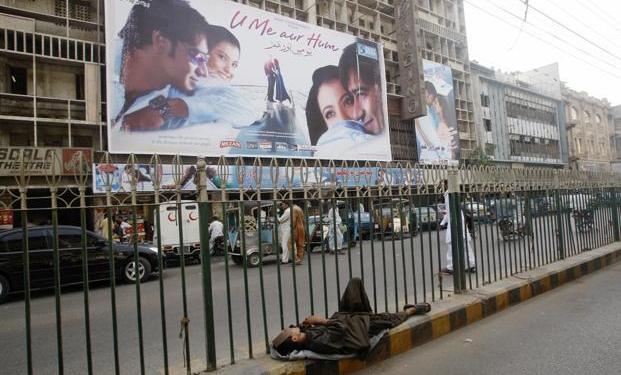After the Balakot air strikes, former Pakistani information minister Fawad Choudhary responded by imposing a total ban on Indian movies. Choudhary had tweeted, “Cinema Exhibitors Association has boycotted Indian content, and no Indian Movie will be released in Pakistan. Also have instructed PEMRA to act against Made in India Advertisements.” This has resulted in a drop of footfalls in the Pakistan theatres and a complete havoc among the distributors.
Cinema Exhibitors Association has boycotted Indian content, no Indian Movie ll be released in Pakistan. Also have instructed PEMRA to act against Made in India Advertisements. #PakistanTayarHai https://t.co/9BPo6LIsVB
— Ch Fawad Hussain (@fawadchaudhry) February 26, 2019
An expert said, “Pakistan has close to 170 viable screens. It’s a very small market as compared to India. Bollywood and local films are the main content forms that are screened in the country. Banning Bollywood films will mean a paucity of content to keep the multiplexes and theatres running profitably.” Pakistan has way fewer theatres than there are in India – while India has 9000 screens, Pakistan has 53 times less in Pakistan.
Moreover, Pakistani estimates suggest that the country makes more than 50 percent of their revenue from Indian films. The multiplexes of the country rely on Bollywood for their revenue and therefore the ban is a big setback for them. The ban will also hurt Pakistani film industry which was in revival mode for the last few years. Cinema owners in Pakistan make huge losses whenever Indian films are banned in the country.
Producers and distributors in the country have now shown concern over the profits that their movies fail to make. Pakistani movies like Lal Kabootar, was acclaimed by critics. However, it did badly on the box office. This has also instilled the fear of criticism in the directors and producers in the country. Sher Dil producer Noman Khan had addressed his concerns over the fact that negative media comments affect the sales of tickets and hence should be held back by the press. It is evident that the ban on the Indian movies has hit the profit making prospects of filmmakers in Pakistan.
Experts have also opined, “Studios make money by getting a collection of 40-45 percent of ticket sales from any multiplex. There are certain markets which are not part of the business and only come on the radar when a film’s collections are under-reported. Pakistan is one such market. Hence, filmmakers do not put such markets in the equation of their revenues.” The ban on Indian movies will not matter much to the Indian producers as Pakistan is a very small market. The total business of the Pakistan film industry is Rs 55.8 crore and an average Indian film grosses Rs 4 to 5 crores in the time it exists in Pakistani market.
The overseas market of Indian film industry amounts Rs 2,500 crore, of which Pakistan accounts for only Rs 30 crore. The Pakistani market accounts for only 1.2 percent of total Indian overseas market as per FICCI-EY 2018 media and entertainment report. The size of Indian film industry is around Rs 10,300 crore compared to Rs 65 crore Pakistani film industry. Therefore, Indian film industry is 158 times bigger than the film market of Pakistan.
While experts have said that Pakistan’s ban on the Indian content will be affecting their own economy harshly, distributor and exhibitors also feel that the ban is only a step back for Pakistani film industry. The Pakistani film industry, which was going through a revival mode, received a major setback with the Indian films being removed from the theatres in Pakistan.

























